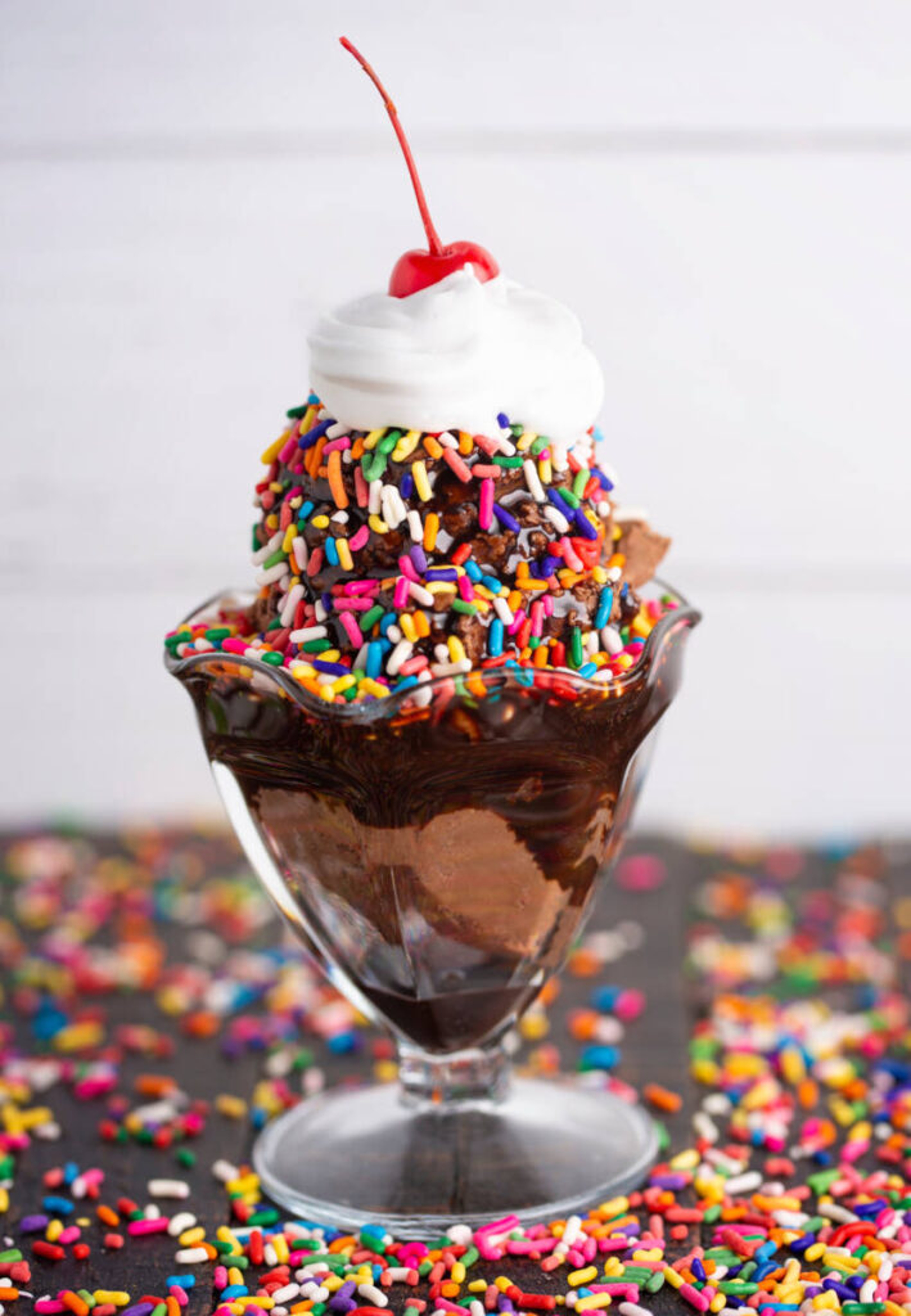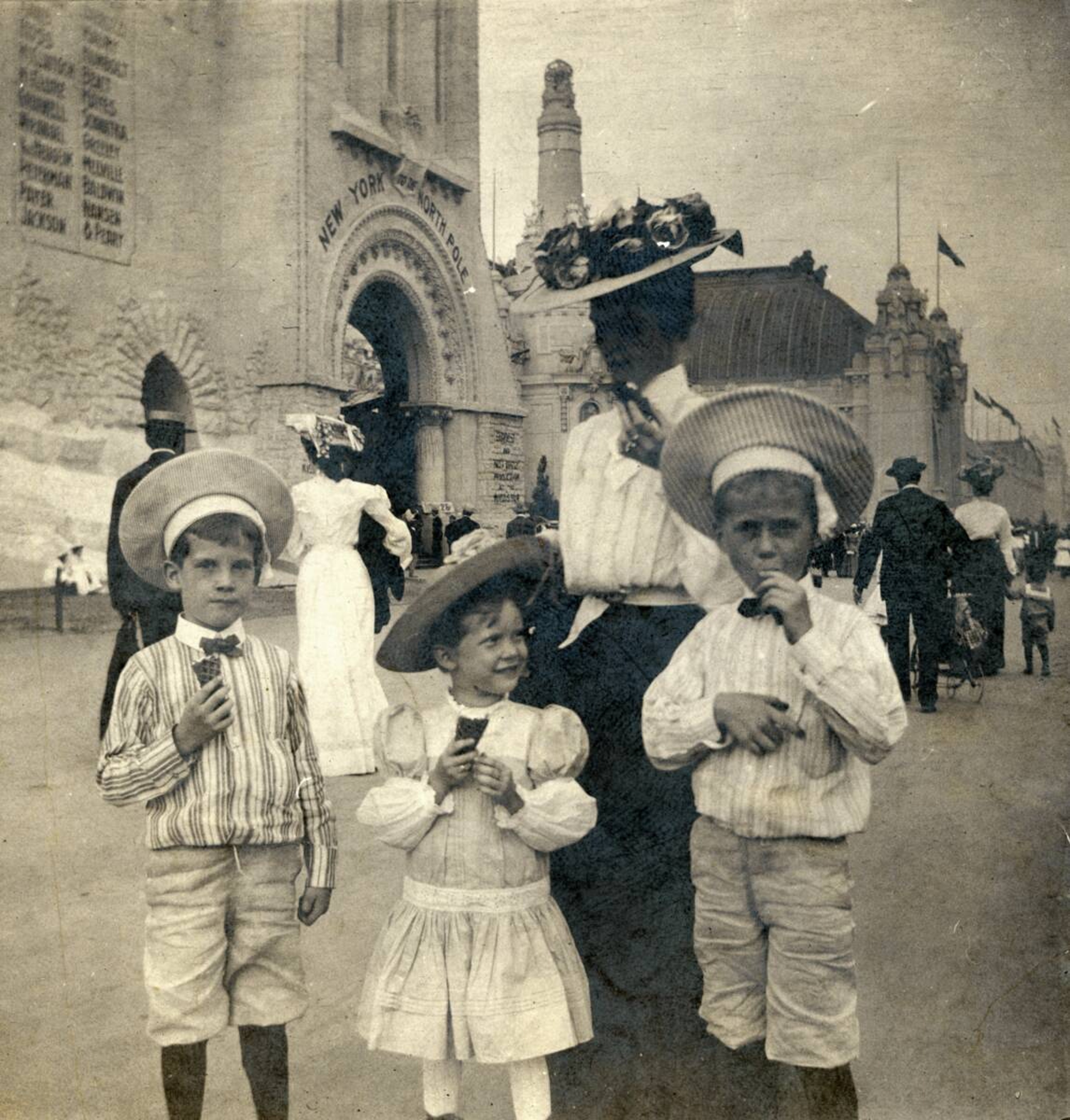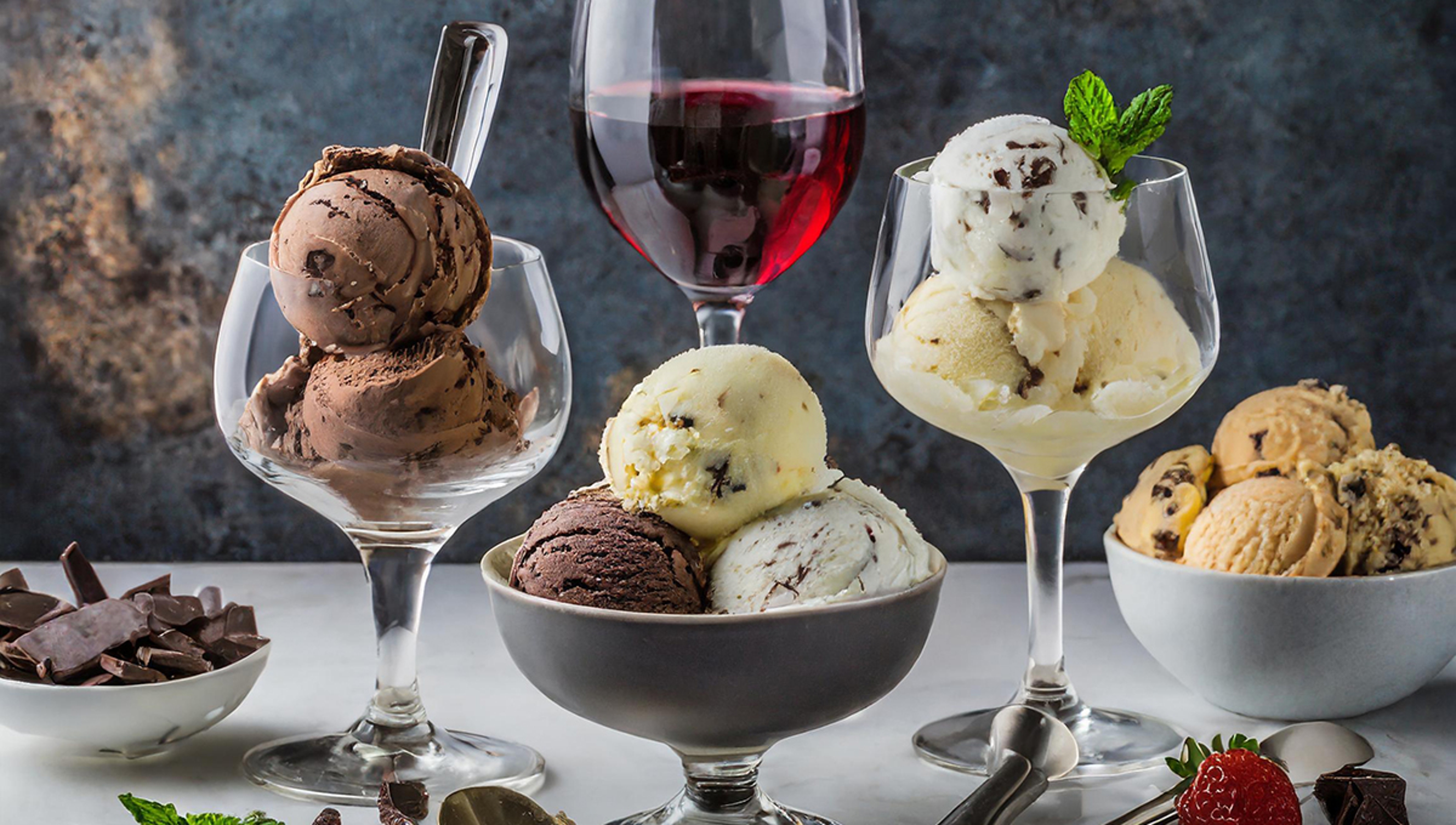20 Things You Didn't Know About Ice Cream
Grab a cone, pile on a few scoops — and toppings — and read the most fascinating facts surrounding this frosty and fabulous treat.
Jun 21, 2024
1. New Zealand consumes the most ice cream per capita, with an average of 7.5 gallons per person annually. The United States is second with 5.5 gallons per person.
2. Despite their similarities, all "ice creams" are not created equal. Traditional ice cream is dairy based and made with cream and egg yolks; sorbet is fruit based and dairy free; gelato is an Italian-style ice cream containing less fat and air; and sherbet is fruit based but also contains a small amount of dairy.
3. The first-ever ice cream was served in ancient China around 200 B.C., and made from a frozen combination of milk and rice.
4. Roman emperor Nero enjoyed an early form of ice cream made with snow mixed with fruit. He loved it so much that it was considered a form of currency in his ancient empire.

5. Legend has it that famed explorer Marco Polo brought ice cream to Italy following a series of explorations throughout Asia.
6. Thomas Jefferson is credited with being the first U.S. citizen with a recipe for ice cream, which he brought back to the States following a stay in France.
7. Speaking of France, Paris is home to one of the world's oldest cafes and coffee shops — Le Procope, which originally opened in 1686. Still operating today, this grand and refined space was one of the first restaurants of its time to sell ice cream. Its current menu offers more than a dozen different ice cream desserts.
8. First lady Dolley Madison, wife of our fourth president James Madison, wasn't the first to serve ice cream in the White House, but she certainly made it popular. Her favorite flavor was something a bit outlandish: oyster ice cream. Thankfully never served at state dinners, this crazy-sounding concoction was a combination of savory and creamy flavors, much like frozen clam chowder with the soup's chunks strained out.
9. Dolley's oyster ice cream is definitely weird, but it's not the most unusual ice cream flavor ever dreamt up. More recently, creative chefs have dreamt up everything from smoky lox ice cream, corn-on-the-cob ice cream (complete with chunks of brown sugar), lobster ice cream (made with real claw meat), bacon and waffles ice cream (made with real bacon crumbles), and "pizza-flavored" gelato, infused with authentic bits of tomato, basil, and oregano.
10. Don't get us started on the ice cream flavors in Lithuania.
11. The most expensive — and ostentatious — flavors of ice cream ever created include Black Diamond (a simple Madagascar vanilla bean ice cream base blended with rare Italian truffles and a scarce form of saffron grown in Iran) sold in a Dubai ice cream shop for $800 a scoop.
12. In 2013, a U.K. inventor developed glow-in-the-dark ice cream made with the help of a protein extracted from jellyfish.
13. The first-ever cookbook devoted entirely to different flavors of ice cream — L'Art de Bien Faire les Glaces d'Office by French chef M. Emy — was published in 1768.
14. In 1904, a vendor selling ice cream at the St. Louis World's Fair ran out of bowls. He asked another nearby merchant selling waffles for some help, and the first-ever ice cream "cone" was born.

15. The world's tallest ice cream cone was made in Norway and clocked in at more than 10 feet. The "longest" ice cream dessert ever measured more than 4,500 feet and was assembled at a Texas food festival.
16. The first-ever ice cream truck was invented in 1920 and consisted of a freezer mounted on a Ford Model T.
17. Selling ice cream sodas on Sundays used to be illegal in some U.S. states because the carbonated treats were considered too “sinful." Instead, restaurants began to sell ice cream "sundaes" topped with hot fudge and nuts as a safer, more wholesome alternative.

18. The location where ice cream sundaes were first served is a source of much debate. New Orleans; Ithaca, New York; Two Rivers, Wisconsin; and Evanston, Illinois, all claim to be the birthplace of the sundae. As for that spelling, blame it on marketing. Sundaes were often sold on Sundays, to be enjoyed after church. But changing the dessert's name slightly was also a way to let customers know sundaes were available to buy on other days of the week as well.
19. A "brain freeze" occurs when ice cream comes into contact with the roof of the mouth for too long. The coldness of the dessert causes blood vessels to rapidly constrict, triggering a brief bout of shooting pain in the head.
20. Japanese researchers have found that eating ice cream can help some people score better on mental acuity tests. Not to be outdone, several Harvard studies have also tentatively linked regular (but not excessive) ice cream consumption to a lower risk for certain types of heart disease. More studies as to how this might be possible are underway.











